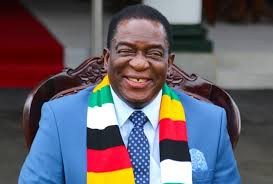
ON Tuesday, a colleague posted George O Sylvester’s message: “When a nation’s growth rises on paper but its people sink in hunger, that is not progress — it is polished poverty wearing a mask of statistics”.
How true. The words struck a chord. I did not need to open an encyclopedia to picture countries that fit that description, they are scattered across the globe: in parts of Asia, Europe, the Americas and of course, Africa, where such examples abound.
Zimbabwe is no exception. An ever-heating political landscape, which has been marred by contested election results since the turn of the millennium with several interesting stories attached to alleged rigging — Nikuv and the Forever Associates Zimbabwe among many others.
The ongoing factional wars within Zanu PF have only deepened national uncertainty, stalling the socio-economic transformation citizens yearn for.
At the heart of Zimbabwe’s biggest problems lies corruption, an open secret and, some would say, the very fault line in the tense relationship between President Emmerson Mnangagwa and his deputy, Vice-President Constantino Chiwenga.
This is a country blessed with vast natural wealth: fertile land, gold, diamonds, lithium, platinum, chrome — the list goes on. Yet, travel across Zimbabwe and you will encounter a very different reality.
The levels of poverty and inequality tell a story that sharply contradicts the glowing statistics presented by officials from the Finance Ministry and the Reserve Bank of Zimbabwe.
Economic growth figures and projections may look impressive on paper, but they mean little to citizens struggling to survive.
- Lobby group bemoans impact of graft on women
- Corruption watch: Rogue cops: Blame it on the bosses
- DJ Ladyg2 fights stereotype in showbiz
- Corruption watch: Who is benefitting from the Pomona sham deal?
Keep Reading
Our health sector is in the intensive care unit — public hospitals lack drugs, equipment and staff morale. Meanwhile, the political elite and the well-connected fly abroad for medical treatment.
Unemployment is at record levels, and companies are either closing shop or downsizing, citing currency instability, punitive taxes and parallel market pressures.
Authorities, however, insist the local unit, the Zimbabwe Gold (ZiG), has brought “stability”. It is our sixth currency experiment in two decades, yet ordinary citizens are still asking: stability for whom?
The rosy narrative of economic growth does not match the lived realities in places such as Muhlangureni, Chikombedzi, Magusvini in Nkayi, or Dotito in Mt Darwin.
The people there are not demanding luxury — they simply want decent lives that reflect the wealth of their nation.
Instead, this wealth has become the preserve of a privileged few, who flaunt their affluence through lavish lifestyles and performative charity, handouts that only highlight the depth of inequality.
Zimbabwe’s leaders must confront this widening gulf between the rich and the poor.
Righting these wrongs would not only earn today’s leaders the gratitude of a weary nation, it would ensure their names live on, etched with honour in the hearts of future generations.











